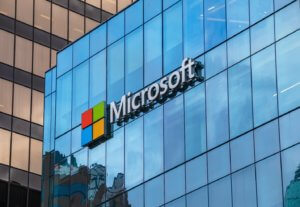A new alliance is coming together to confront the global threat posed by cyberattacks sponsored by China. An alliance consists of NATO member states.
The United States, with allies, including the European Union, Britain, Canada, Australia, New Zealand and Japan, are blaming China’s Ministry of State Security for a massive cyberattack on Microsoft Exchange email servers. As we all remember, a cyberattack on a tech giant occurred earlier this year.
The group denounced China as a major threat to economic and national security.
Remarkably, the attack was led by criminal contract hackers working for the MSS. They also engage in cyber-enabled extortion, cryptojacking and ransomware.
A senior Biden administration official announced that the group would share intelligence on cyber threats and collaborate on network defences and security.
On July 19, the FBI, National Security Agency and Cybersecurity and Infrastructure Security Agency published a new advisory listing 50 tactics, techniques and procedures that Chinese state-sponsored hackers use.
The Microsoft Exchange server attack became public in March. It affected at least 30,000 U.S. organizations and hundreds of thousands more globally.
The company quickly identified the group behind the hack as a relatively unknown Chinese spying network named Hafnium.
Authorities are waiting for the evidence that hackers were on the Chinese state payroll
Authorities are waiting for the evidence to prove that the Hafnium hackers were on the Chinese state payroll.
Joe Biden was trying earlier this summer to rally support among NATO and EU allies for a more aggressive approach to an Asian country.
As we know, the Biden administration has imposed several economic and diplomatic sanctions this year.
On July 16, America sanctioned seven Chinese officials in response to Beijing’s crackdown on Hong Kong’s democratic institutions.
The U.S. also issued a business advisory. It warns U.S. companies of potential data and privacy breaches by the Chinese government if they continue to do business in China.
Meanwhile, a Chinese foreign ministry spokesperson blamed the United States for meddling in its internal affairs.
Remarkably, the White House has raised the Microsoft attacks with senior members of the Chinese government. According to the senior official, the People’s Republic of China threatens security, confidence, and stability in cyberspace.
Despite longstanding strains with China, this is the first time NATO has explicitly called out Beijing for its hacking.











